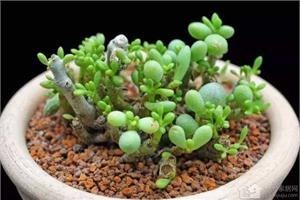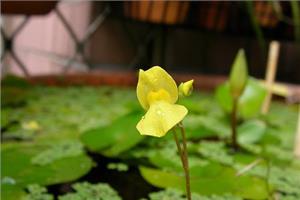There are many foliage plants to know several classic foliage plants.
We can often see all kinds of beautiful plants in our daily life, and this kind of plant generally has long leaves and beautiful leaves at the same time. And this graceful plant has a common name called foliage plant. Foliage plants generally refer to those plants that live in the tropics, whose leaves are longer because they require more water. Next, I will give you a brief introduction to several foliage plants.

Dryopteris przewalskii
First of all, the first kind of foliage plant introduced to you is Dryopteris. This plant is a small plant, about 15 to 40 centimeters tall, and its rhizome is growing horizontally. And the bottom of the leaves of this plant is purple and glossy, and its leaves are in the shape of goose eggs. On the other hand, the main body of the leaves of the plant is emerald green, and the top of some leaves will extend into a whip-like shape, and if its leaves touch the ground, it will take root and develop buds. This kind of plant not only likes a warm environment, but also has a certain degree of cold tolerance. If it is cultivated in the south, it can survive the winter even in winter. If we want to plant this kind of plant, we can plant its seedlings on the ground or in a flowerpot. Because the plant is afraid of sunlight during its growth, we need to put it in a cool place.
Pepper grass
The second kind of introduction is pepper grass. Perhaps most people have not heard of the name of this plant, it is a plant native to Brazil, and its height is relatively tall, usually about 20 to 30 meters, at the same time, this plant has no obvious stem, so the leaves of the plant grow directly from the stem of the plant, and the leaves are very broad, thick and shiny. The surface of the leaf is green, while the back of the leaf is red. And there are circles of silver stripes on the surface of the leaves, just like watermelons, so it is also called watermelon grass, and this plant likes to grow in a humid and semi-humid environment, and if the light is too strong, it will affect the discoloration of the leaves. The most suitable growth temperature of this plant is about 20 to 30 degrees, because its rhizome is soft, so it is easy to rot, so we need to add corresponding measures to keep warm when the plant overwinters.
Begonia
The third kind of introduction is begonia. This plant has dark green leaves with some silver-white markings in the middle, while its leaves show purplish red on the back, and there is a clear black cross in the middle of the leaves, so it is also known as iron cross begonia. This kind of iron cross begonia likes to grow in some warm and humid environment, and it has a low demand for light, but if the light is too weak, it will affect its leaf color, so we usually put it in a place with bright sunlight, such as in the living room at home or in the shade of trees outside.
The above are several varieties of foliage plants. The common characteristic of plants is that their leaves are beautiful and their bodies are slender. It is very suitable for display at home or in some public places. If we want to grow a foliage plant, we need to check the relevant flower information on the Internet.
Related
- Wuhan Hospital Iron Tree Blooming Result Was Instantly Frightened by the Gardener Master
- Which variety of camellia is the most fragrant and best? Which one do you like best?
- What is the small blue coat, the breeding methods and matters needing attention of the succulent plant
- Dormancy time and maintenance management of succulent plants during dormancy
- Minas succulent how to raise, Minas succulent plant pictures
- What are the varieties of winter succulent plants
- How to raise succulent plants in twelve rolls? let's take a look at some experience of breeding twelve rolls.
- Attention should be paid to water control for succulent plants during dormant period (winter and summer)
- Watering experience of twelve rolls of succulent plants
- Techniques for fertilizing succulent plants. An article will let you know how to fertilize succulent plants.



